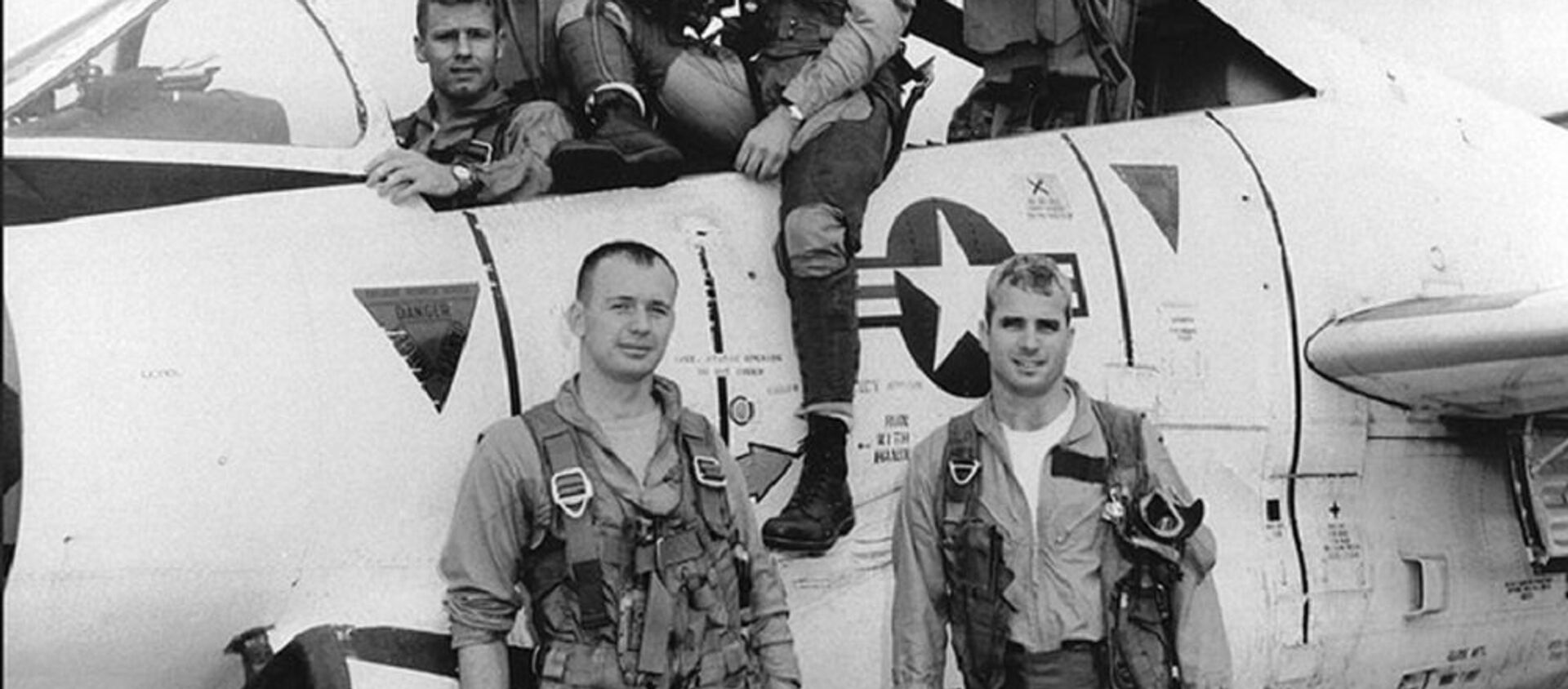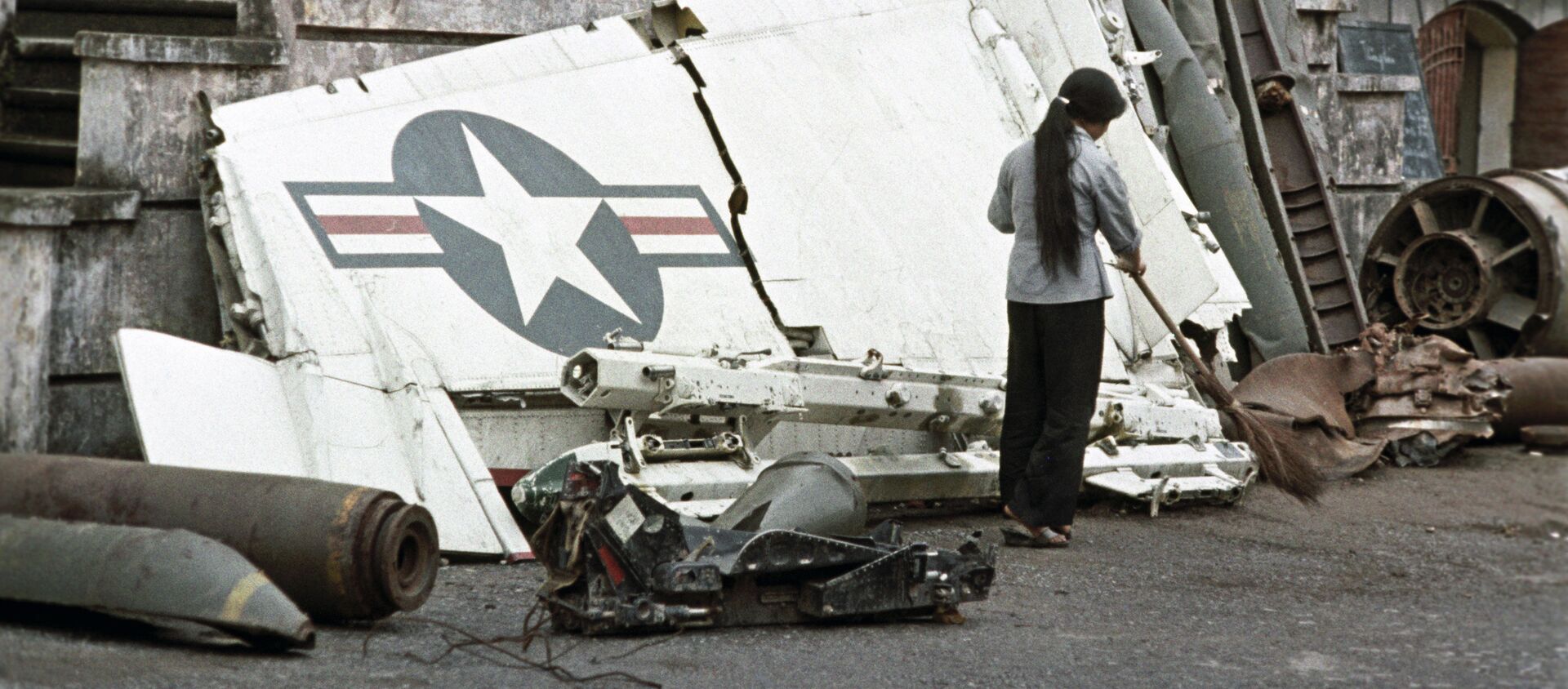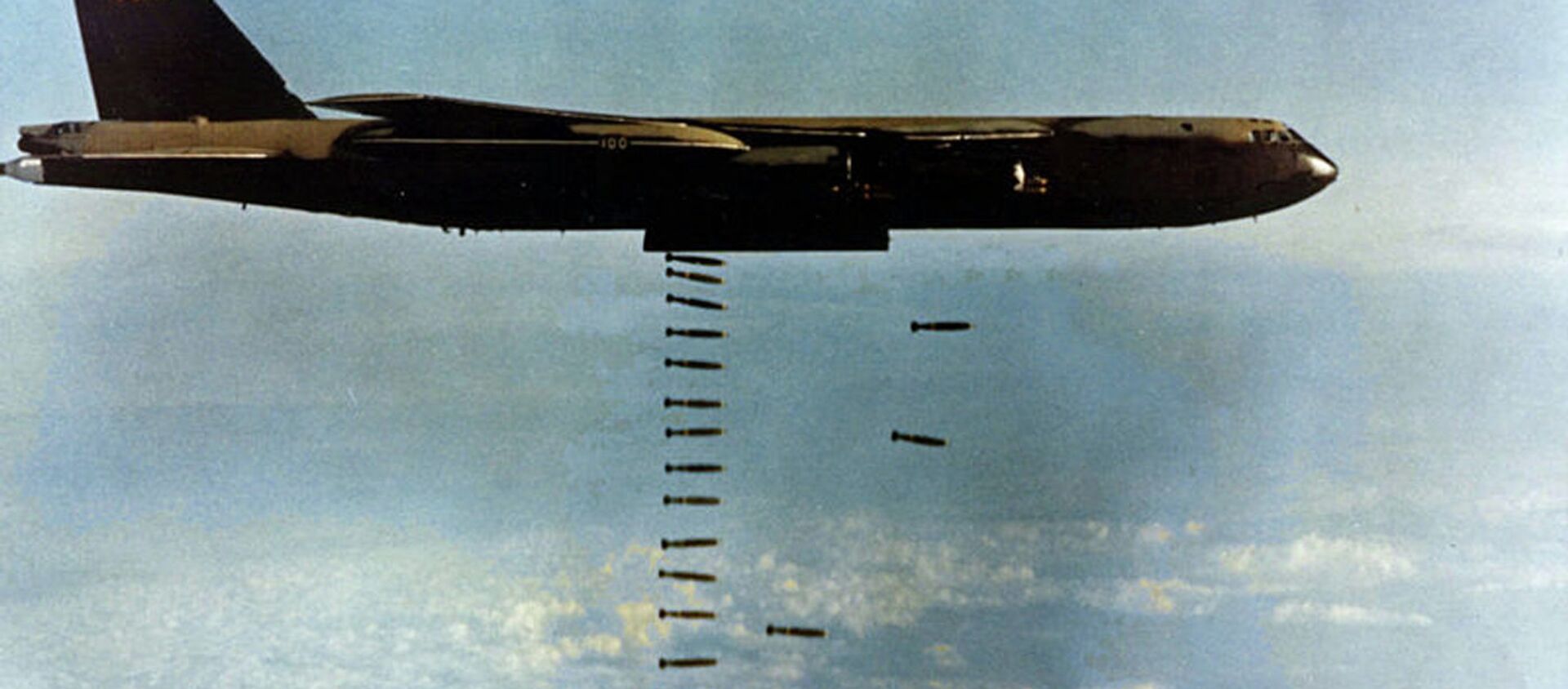Veteran Reveals to Sputnik How the Soviet Union Helped Defeat the US in Vietnam
13:00 GMT 29.03.2023 (Updated: 13:19 GMT 29.03.2023)
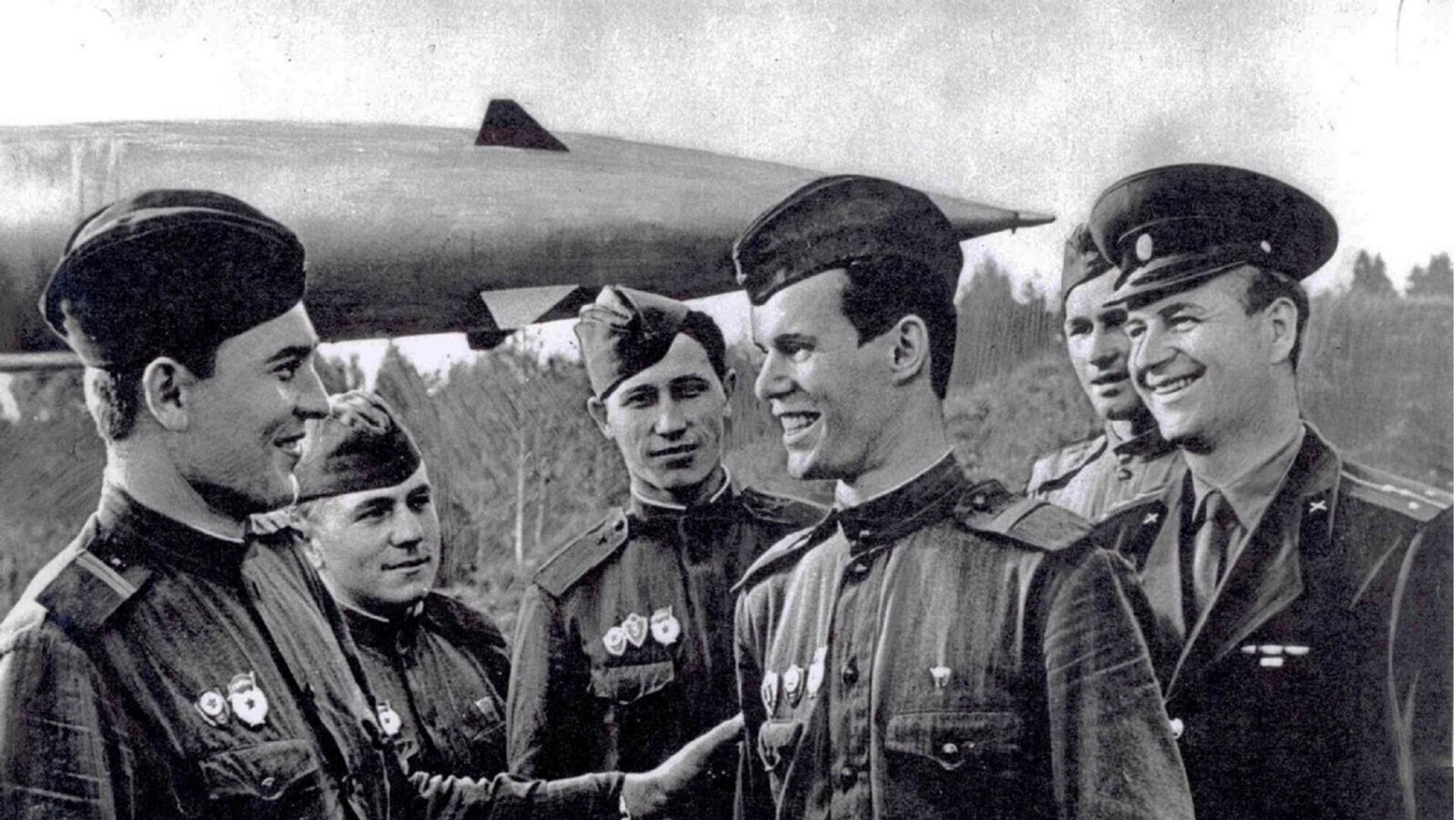
© Photo : Nikolay Kolesnik
Subscribe
Exclusive
The US sent troops to South Vietnam in 1965, kicking off a brutal, decade-long conflict. In 1975, Washington's South Vietnamese client state collapsed, and Vietnam was reunified. Over 1.1 million North Vietnamese and Viet Cong soldiers, 450,000 South Vietnamese troops, 2 million Vietnamese civilians and 58,000 US servicemen died in the conflict.
Fifty years ago, on March 29, 1973, the United States withdrew its last combat troops from South Vietnam in the wake of the signing of the Paris Peace Accords two months prior.
Nikolay Kolesnik, a senior lieutenant in reserve and chairman of the Inter-Regional Public Organization of Veterans of the Vietnam War, spoke to Sputnik about his service in Vietnam during its war with the United States and the contribution the Soviet Union had made to the North Vietnamese victory over the US. Here is his story.
Sputnik: Could you please tell us how you ended up in Vietnam?
Nikolay Kolesnik: I did my military service in the surface-to-air missile troops of the Putilov-Kirov Guard Regiment. At the end of March 1965, I was asked to go to Vietnam with my crew. I was a commander of the launching station, and I agreed. And my whole unit was ready to go. So I ended up in Vietnam as part of a group of Soviet military specialists. That's what they called us, we had a status in Vietnam - a group of Soviet military specialists. In addition, the battalion commander, then a major, Ivan Konstantinovich Proskurnin, went with us. That's how we got there.
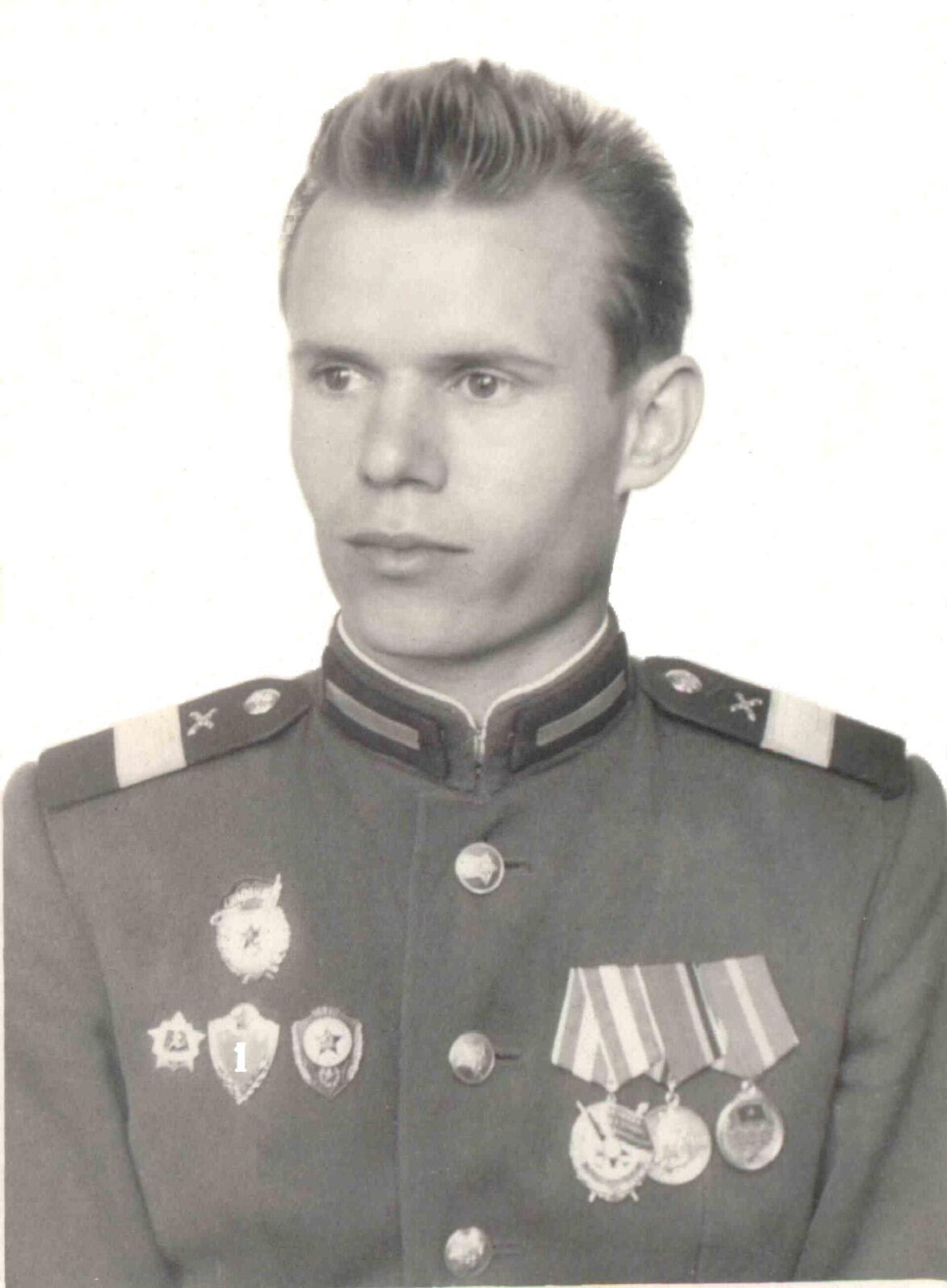
Guards Senior Sergeant Nikolay Kolesnik after Vietnam. Putilov-Kirov Guard Surface-to-Air Missile Regiment, Mitino village, March 1966.
© Photo : Nikolay Kolesnik
The offer [to go to Vietnam] came as no surprise, because the war was already in its second year.
The Americans started bombing North Vietnam on August 5, 1964, and we saw it all on the news on TV, on the radio, we knew it, we saw it. But for us, the Vietnam War was something distant and generally like in the movies - you see, you're worried about what's going on, but you understand that it's only on the screen. But here we were in the middle of it, in a real war situation.
Our mission was to train the soldiers of the Vietnam People's Army in the use of our S-75 surface-to-air missile systems so that the Vietnamese could counter US air attacks with modern weapons. Up to that point, they had only defended themselves with anti-aircraft guns, which were ineffective and resulted in heavy civilian and military casualties.
What really happened.... you can't even compare a documentary chronicle with the events that take place during the filming. It is only a glimpse of those actions, those stories. When you are at war, you feel and perceive things differently, and you act differently.
Sputnik: What was your first impression?
Nikolay Kolesnik: First, we had to train the Vietnamese. That was our job. Our participation in combat was not originally planned. We had to train the Vietnamese, give them the equipment, help them set it up, get all the combat parameters up to par, and let them fight. But the situation arose because the Americans were bombing North Vietnam. There were massive raids day and night, so it was very difficult for us to train the Vietnamese. We didn't have training alarms, only combat alarms. Colonel Tsygankov, the commander of the training center of the First Anti-Aircraft Missile Regiment, suggested that we prepare our SAMs, make them operational, and fight the Americans so that they would not interfere with our training of the Vietnamese. Tired of all these alarms, every half hour we had to stop the training, run, and take cover. After a while we would resume, and we did this every day. Teaching under such conditions was much more difficult.
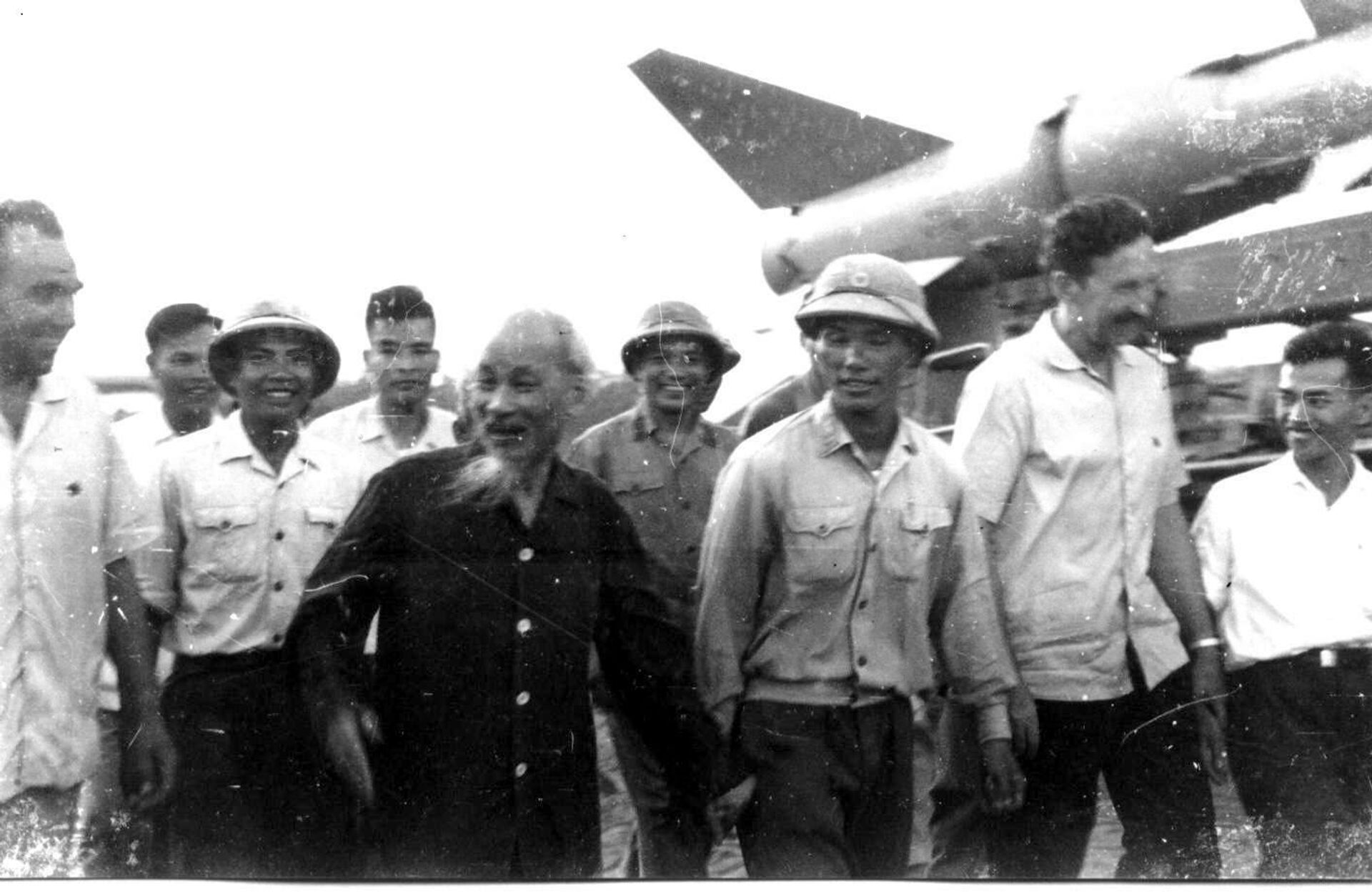
President Ho Chi Minh and the firing division commanders: Guards Major Ivan Proskurnin, Captain Ho Shi Huu, Major Boris Mozhaev at the 61st Division on August 26, 1965.
© Photo : Nikolay Kolesnik
What we did then - there was Ilya Sergeevich Scherbakov, the ambassador extraordinary and plenipotentiary of the Soviet Union to Vietnam, and we discussed this matter with him. He gave his approval, probably coordinated it with Moscow, and it was decided to deploy the first two divisions of the first anti-aircraft missile regiment to combat positions and fight the Americans, which we did on July 24, 1965. For the first time in modern military history, our S-75 SAM systems, and anti-aircraft missiles in general, were used in real combat situations against supersonic US aircraft. And successfully.
Then two divisions of the 236th Surface-to-Air Missile Regiment of the Vietnam People's Army came out and shot down three American jets. That shocked the Americans. They stopped flying over North Vietnam for two weeks. Not just bombing, but flying in general, except for unmanned spy planes. Because they didn't expect that Soviet anti-aircraft missiles would be used so quickly and in a place they never expected. All the more so because the first group of Soviet military specialists arrived at the end of April, on April 30, 1965. And the train with the equipment came through China. And then they came out two and a half months later.
It's impossible to train a rocket specialist in that time to be able to do combat work on his own, to fight with that equipment. I was in sergeant school for nine months after I was drafted into the Soviet Army, and even then I did not know everything and probably could not do everything when I got to the regiment. And the Vietnamese, who did not have a high level of education and technical training, there were officers, of course, who had studied in the Soviet Union, and the sergeants and soldiers, they had a seventh grade education, only a few had 10 years of education, because there had been a war going on since 1961.
It was really shocking for the Americans. But then they started bombing again, and we had already started a real war. The first anti-aircraft engagements of our S-75 systems were carried out by Soviet fighter teams. The Vietnamese crews were second in command, staying close by and absorbing everything like a sponge. In combat situations, training is much more intense. The "do as I do" principle.
Sputnik: Was there a particularly memorable fight in your life?
Nikolay Kolesnik: The first battle for me was the one I will remember for the rest of my life. It was the night of August 11-12, 1965. We were right in the middle of an ambush, which was the tactic for using SAMs. The division would move stealthily at night to a selected position, set up in a firing position, turn around at night so the Americans couldn't detect it, and then fight the US planes as they came into the firing and kill zone. So we did that kind of trek or march. We were in an ambush position, we deployed during the night, at 6 a.m. there was the first alarm. The Americans were already on their way into North Vietnamese territory. We had 18 alarms for the day. But none of those alarms resulted in live fire, because the Americans would come into the firing zone and turn left, turn right, or turn back. And all day long we had this kind of nervousness. For half an hour - the alarm, then for maybe an hour, it was quiet, then the alarm again. But in the evening we were preparing equipment, camouflaging and covering, and fighting back. At night, somewhere around 10 p.m., the alarm went off again, just as I was falling asleep. Suddenly the alarm went off and the fighting started.
At 11:50 p.m. our first division carried out its first launch. We shot down four American jets, deck fighters and bombers, with three missiles. It was not that unexpected, there was such an extraordinary case where one missile shot down virtually two planes, because they were coming with four planes in tight formation. They were not expecting to meet the missiles there. Naturally, they were going to bomb, like at their own firing range. Well, they were hit, and all four planes were shot down. True, the fourth was shot down and went down in Laos, but it was found later and included in our military score. It was a memorable battle.
Sputnik: The Americans were planning to flood Hanoi by blowing up the dams. Can you tell us more about this for our readers?
Nikolay Kolesnik: Hanoi is nine meters below the level of the dams upstream. If they had bombed those dams, Hanoi would have been swept away by the water. But that was not allowed to happen, because the anti-aircraft forces came in and the Americans were already fighting with their eyes open and with caution.
When we started using missiles, many American pilots refused to fly to bomb North Vietnam, they called the area "Zone 7." The seven coffin planks.
Therefore, the Americans had to almost completely replace the flying staff of the American aircraft carriers. The flight time from the aircraft carriers was 15-20 minutes to North Vietnamese territory. After that, they started to engage in combat. Before that, the Americans had doubled their pay for combat sorties in North Vietnam, but still they did not want to sell their lives for money. For them, missiles were certain death; if they entered the firing zone, and everything went well for us, it was certain death for them.
Sputnik: When you first went to Vietnam, what were your impressions of the country?
Nikolay Kolesnik: Everything was unfamiliar, everything was surprising, interesting, and unusual, because it was a different country, a different climate, different people, people's faces - all like twin brothers. We couldn't tell them apart any more than they could tell us apart. But then things got better, we adapted and distinguished everyone by name and rank, and everyone communicated normally. I trained with the First Regiment and the Third Regiment, and when the Third Regiment was training with the Vietnamese, I would sometimes do specialty training, combat training, without an interpreter.
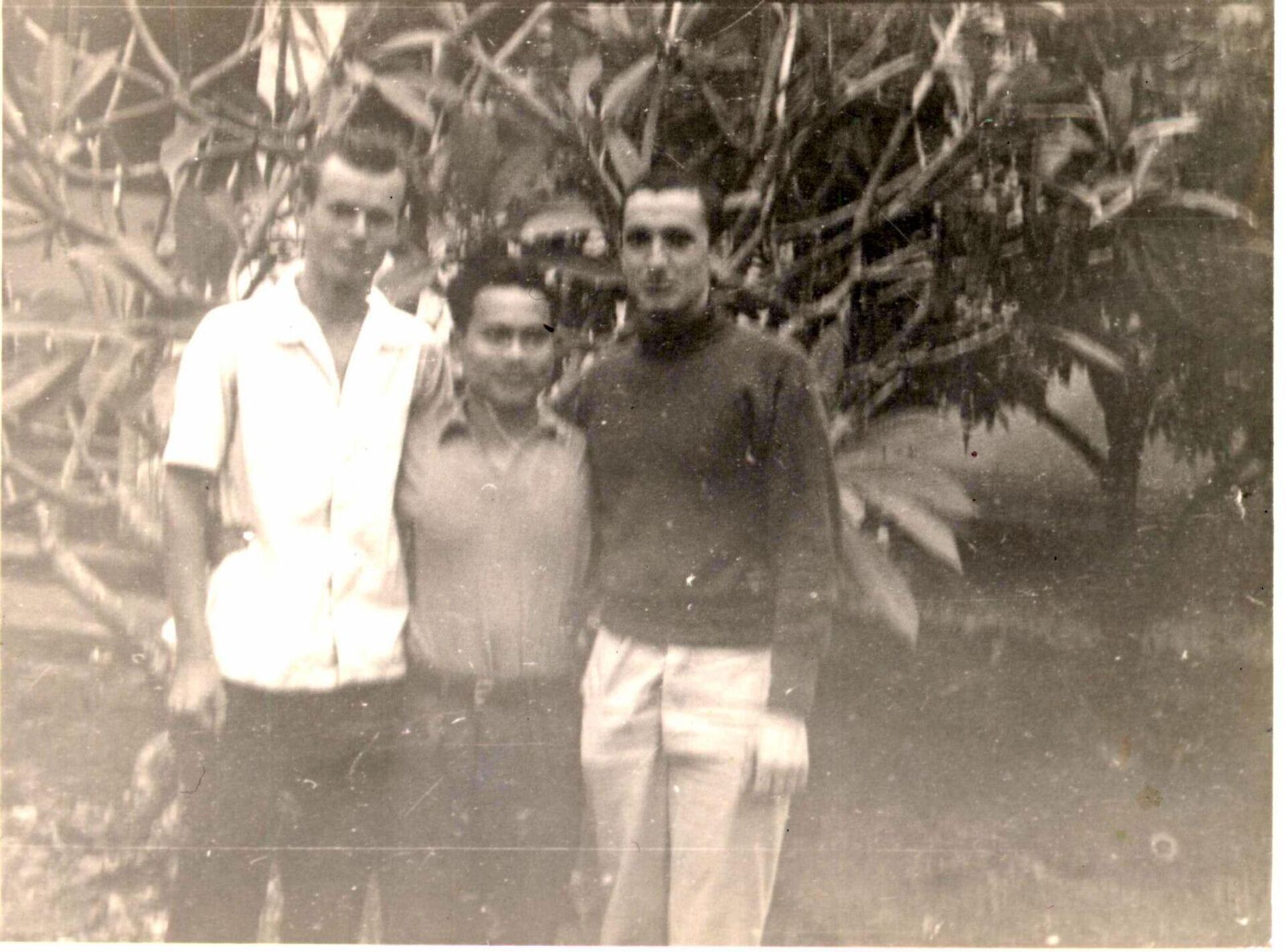
Guards Senior Sergeant Nikolay Kolesnik, Sergeant Anatoly Melnik, Vietnam, October 1965.
© Photo : Nikolay Kolesnik
They understood commands in Russian. We understood them in Vietnamese. In fact, by the time I arrived at our deployment site, the first night I knew how to say "hello," "okay," and "goodbye," and I learned to count to 10 in Vietnamese.
And the weather was a 24-hour bathhouse, or rather not a bathhouse, but a steam room. It was 100% humidity, heat both at night and during the day, you're all wet, the bed is wet too. Mosquitoes, they are called "muỗi" in Vietnamese. They bite so hard that you itch all over, they can even bite through the back pocket of your pants. They just can't bite through the soles of your shoes. So we had a lot of them.
Sputnik: It was no secret that the Vietnamese did not like the Americans very much. How did they feel about the Soviet military?
Nikolay Kolesnik: They hated the Americans. They hated them as enemies who bombed their towns, villages, schools, hospitals, everything. They treated us very friendly, comradely, we were like a fighting family. In our battalion, instead of 70 people - it was a reduced peacetime calculation in the Soviet Union, and we had no more than 30 people per battalion. So I divided my squad into two incomplete squadrons. Instead of four - three men. We fought with two launchers, although according to the wartime staff, we should have had eight men on each launcher. And the rest were Vietnamese.
In other words, I had two Vietnamese launching units, and my subordinates in the First and Third Regiments had two more Vietnamese launching units. That is, the head was ours, but the hands and everything else were Vietnamese. Because we prepared everything and the Vietnamese loaded the missile; we checked everything and reported on the readiness. By the way, we had 13 Soviet nationalities in the battalion. It was a fighting family. We had Russians, Ukrainians, Georgians, Azerbaijanis, a Yakut, a Tatar, a Kazakh, and a man from Moldova.
In the Soviet Union, we did not distinguish between nationalities. It was the same in Vietnam. We had an understandable, very friendly relationship, they treated us like students treat their teachers. We have a photo on our website in the "Old Photos" section. It is hanging in the Central Vietnam People's Air Force Museum and it says "Teachers and Students." It shows Soviet military specialists and the Vietnamese missile specialists we trained. They still treat us like that.
I met with the station commander whom I first trained. He lives in Ho Chi Minh City. We first met him in 1983, more than 30 years ago. And we still have that relationship today.
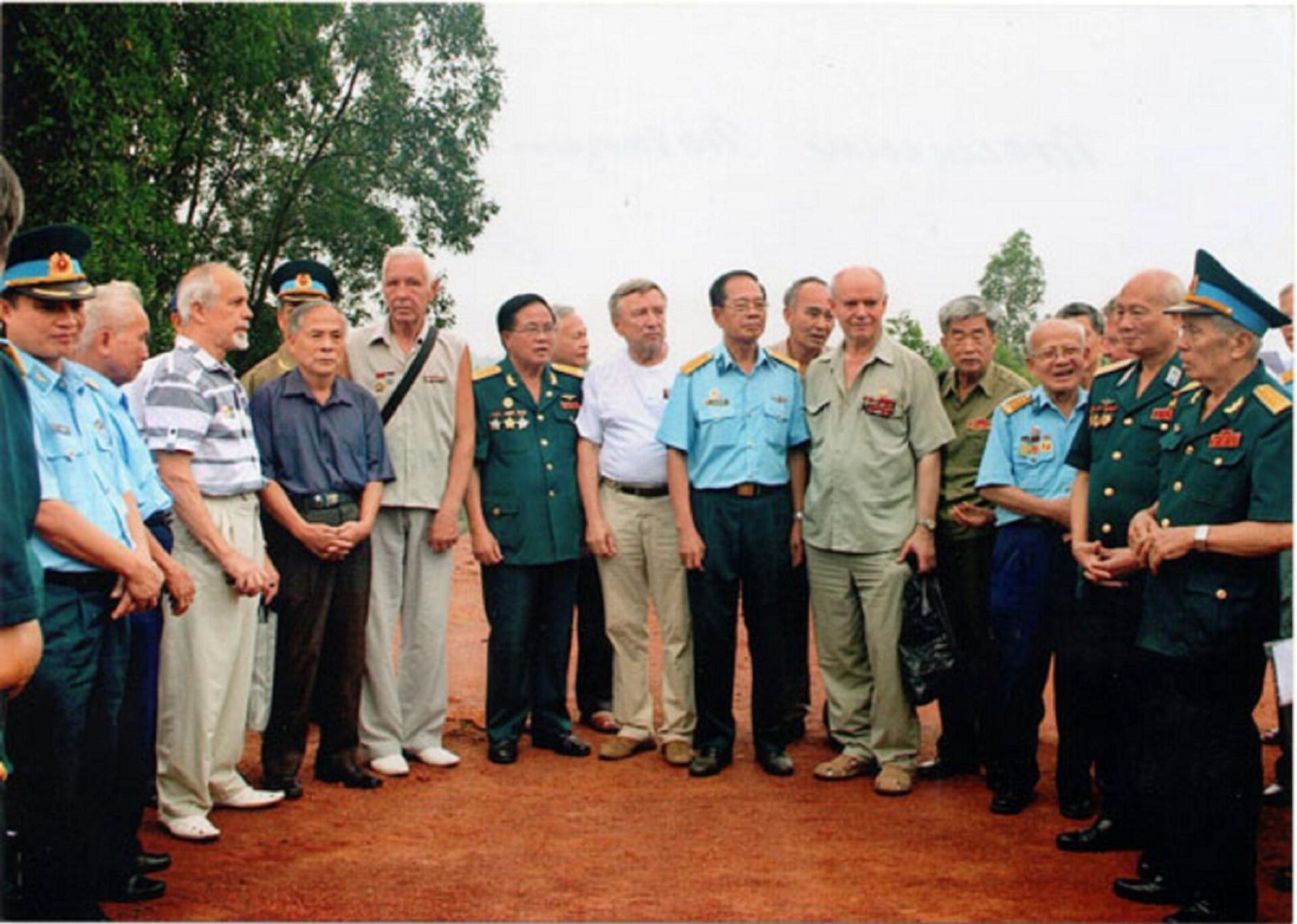
Meeting of the participants of the 1st anti-aircraft missile battle 50 years later at the site of the former SAM system combat position, Vietnam, July 24, 2015.
© Photo : Nikolay Kolesnik
Sputnik: Did ordinary Vietnamese help and cooperate?
Nikolay Kolesnik: Well, first of all, when we passed somewhere in our "Pazik" (PAZ, a Soviet minibus – ed. note Sputnik) and there was a settlement, everyone - young and old - came running out to welcome “Liên Xô, Liên Xô” ("Soviet," "Soviet Union"). Everybody was very friendly. And when we were already winding up after the first fight, we had to wind up as fast as possible so that we wouldn't be bombed, because the Americans had already realized that their planes had disappeared from sight in a few tens of seconds, and they would certainly bomb those positions. We were on our way to our division's hideout, and we were met by the residents of the surrounding villages who had helped us the day before to prepare the positions - the ground was stony, we had to dig and hoe everything up, and they brought gifts - fruit, bananas, oranges, even lemons, and treated us to them. "Please take it, thank you very much, thank you very much." Because the whole neighborhood there woke up when four American planes were shot down above them. The whole sky was in flames, and burning pieces of American planes were falling in circles to the ground.
That is, thanks to our help, relations developed to become very warm and friendly. Now, when many of our "allies" are tearing down monuments to soldiers and liberators in Europe, a monument of red granite has been erected in Vietnam. It reads "To the Soviet and Vietnamese soldiers who gave their lives for the freedom and independence of Vietnam."
Sputnik: Now, after many years, how do you view the Soviet Union's contribution to the North Vietnamese victory over the United States?
Nikolay Kolesnik: Maybe my assessment isn't so important here. What's important is how the Vietnamese see it. When we trained them, they said, "You teach us how to fight, and we will learn from you how to win." Because they learned from us how to win, how we defeated our enemies during the Great Patriotic War, the Nazis. And they say that "your victory is our victory, and our victory is your victory. Without your victory in the Great Patriotic War, there would be no victory for us." That is the way I see it. In other words, they understand that without the help of the Soviet Union, the victory of Vietnam over the Americans would not have been possible.
Sputnik: Why was this help so effective?
Nikolay Kolesnik: Because it was effective both materially and militarily. There was the necessary amount of modern equipment that gave the Americans a kick in the teeth. And the military specialists who helped to master this equipment and to use it in real combat. The military component was very important.
Sputnik: Many of our readers are American. Is there anything you would like to say to them in light of today's geopolitical situation?
Nikolay Kolesnik: I have had to meet American Vietnam War veterans more than once. They were people like us. They didn't need the war either, they lost their health and their comrades there, they were crippled and disabled. I want to say that wars are always started by the rulers and ended by the soldiers. And it is necessary for them to regain their common sense, because this is a war they have started now, they practically fed the Nazis of Ukraine, and we had to start a special military operation to stop the destruction of our own Russian people in Donbass.
You must understand that any assistance to the Ukrainian nationalists, which they have been giving very vigorously and persistently all this time, military assistance, including arms and ammunition, will cause us Russians to feel indignation and hatred toward those who are in charge of America. In the end, this could end very badly for America, if not the collapse of America. So they should remember what they went to Vietnam with, carrying their democracy on bomber wings and bayonets. And how it ended for them. It ended in their total defeat.
Vietnam is the only country that defeated America with the help of the Soviet Union. Perhaps the lesson of Vietnam has not served them well. This is what I wanted to tell ordinary Americans and their leaders. By the way, I met US Senator Dana Rohrabacher. He is the man who coined the phrase "Evil Empire" attributed to Reagan. He has been called America's most incorruptible senator. And indeed, he has always spoken from a position of truth. But he wasn't right about everything. Somehow, I don't hear any outrage now, including from him and other senators who should understand that this buildup and escalation of the war in Europe between Ukraine and Russia, pumped up with NATO and especially American weapons, will end in the collapse of the entire system created with American money in both Europe and the United States.

